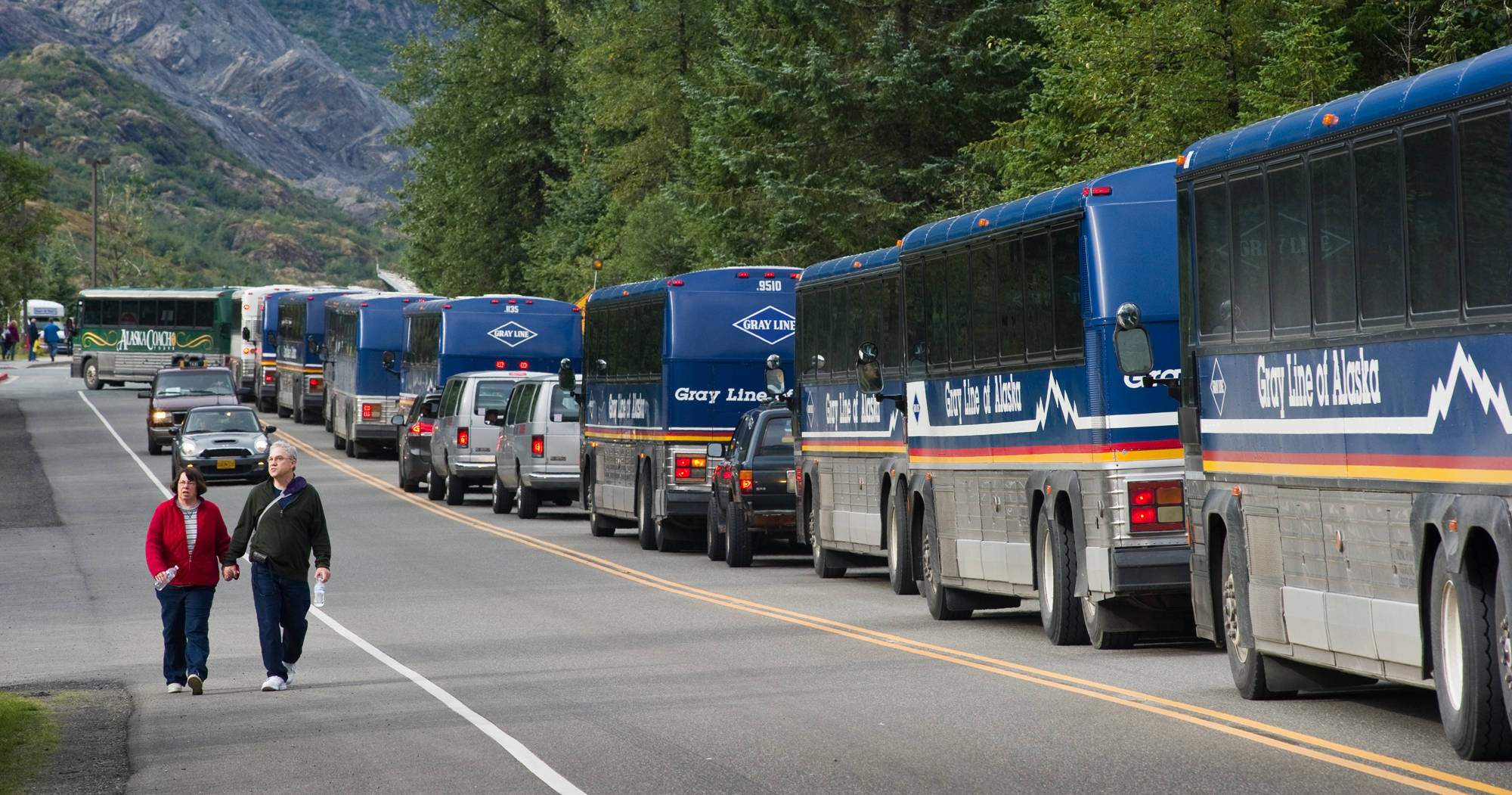Each year, more than half a million people come by bus and taxi to the Mendenhall Glacier, Juneau’s most popular tourist destination.
Even after Gov. Bill Walker signs a bill making Alaska the last state to allow Uber and Lyft, tourists will still come to the glacier by bus and taxi.
They’ll have to: Uber and Lyft aren’t allowed at the Mendenhall Glacier Recreation Area.
“The bottom line for us is people can’t conduct a business in a national forest without asking first,” said Jessica Schalkowski, who manages special-use permits for the Tongass National Forest, including the glacier.
Under House Bill 132, which authorizes Uber and Lyft (HB 132 has not yet been signed by Walker, but he is expected to do so), each driver is an independent contractor, responsible for his or her own business licensing.
According to Forest Service regulations, someone running a business needs to have a special-use permit “if there is a fee being charged or if income is derived from the use (of Forest Service land).”
That includes a business transporting people to the glacier and the visitor center.
“That’s a fundamental regulation. They have to propose, and we tell them yes or no,” said Juneau District Ranger Brad Orr in an April interview.
The purpose of the permit is to make sure the public benefits from the use of a public resource.
At the glacier, competition for transportation permits is intense.
In 2015, the Forest Service opened applications for a new round of permits intended to meet rising tourist demand. The agency received more than three and a half times the number of applicants than it had spaces available at the Mendenhall Glacier Visitor Center.
Alaska Coach Tours was one of the businesses that did win permits. In its award letter, the Forest Service said ACT (and two motorcoach companies) had “good operating records and acceptable evaluations with the Forest Service.”
Dennis McDonnell, president of ACT, said he’s not opposed to ride-sharing companies like Uber and Lyft. He thinks they will serve an important role in Juneau and, as an example, talked about an Alaska Airlines flight arriving late at night, when few taxicabs were on call.
He isn’t sure they’re a good fit at the glacier, however. For obvious competitive reasons, he’s opposed to their entry. There’s also a safety argument, he said.
If more tourists start arriving at the glacier instead of small cars, traffic will grow, and so will the possibility of accidents.
The Forest Service will have to cope with that future, McDonnell said, possibly by developing a drop-off area for Uber and Lyft users.
That’s a problem for another day, however.
There won’t be another round of permit applications for another few years, Orr and Schalkowski said by phone. The new permits expire in 2020.
“At the present time, we are not accepting any applications or new proposals for the Mendenhall Visitor Center Area,” Orr said.
That leaves Uber and Lyft out of luck.
What about rogue drivers? After all, Uber and Lyft don’t have on-site staff; they rely on software for oversight of independent contractors.
Both companies have the ability to block areas from pickups and dropoffs, but neither would say that they will block the Mendenhall Recreation Area.
“It’s something we routinely do in places where we operate,” said Lyft spokesman Scott Coriell. “For example, we exclude pick-ups and drop-offs in Mexico and Canada. We have been working on determining coverage areas for Alaska. I just don’t have the final areas to share just yet.”
Uber’s Alaska manager, Brian Gebhardt, would only say by email that the company hopes Walker will sign the HB 132 and “we will of course adhere to local, state and federal regulations when we begin operations in Alaska.”
The Forest Service has some law enforcement of its own, but Orr and Schalkowski said they expect that permitted, legal transporters will keep an eye out for any Uber violators.
“The thing about this area is everyone works in a fishbowl. If we don’t see you, one of the other commercial users will,” Schalkowski said.
“It may not be the first day, but we will find out about it,” Orr added.
• Contact reporter James Brooks at james.k.brooks@juneauempire.com or call 419-7732.

